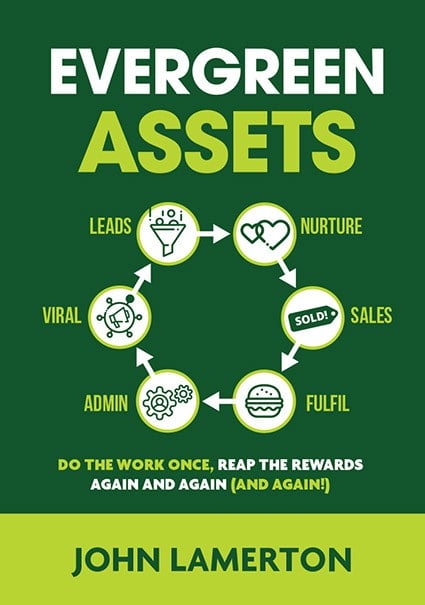What is a Lifestyle Business?

A lifestyle business is a company designed to support the owner’s desired way of living. It often focuses on personal fulfilment and work-life balance over growth and maximising profits.
A lifestyle business puts emphasis on aligning the business with the owner’s personal values and preferred style of working. These businesses are often built to provide a comfortable life for the owner. Lifestyle businesses allow the owner to maintain a balanced and flexible lifestyle, around their passions, interests or hobbies, rather than pursuing purely financial gains or growth from their business.
The businesses are therefore typically smaller in size and owner-operated. They prioritise personal satisfaction and well-being, making them distinct from more financially ambitious business ventures.
A lifestyle business is one where the business owners’ needs come first, ahead of the needs of the business. In other words, work to live, not live to work.
An example of a lifestyle business – Jane’s Bookstore
Jane’s Bookstore is nestled in a charming little town. She curates a selection of books she loves, hosts book clubs and provides teas and coffees to fellow book-lovers.
The bookstore’s opening hours are based around Jane’s family commitments, allowing her to spend quality time with her young children. Every other Wednesday the shop is closed so she can hike across the local moors with her partner.
Jane’s Bookstore is a perfect example of a lifestyle business. It allows her to combine her passion for literature, with her enjoyment of the countryside and the needs of her family.
Instead of chasing rapid expansion and maximum profits, as more traditional businesses may do, Jane handpicks books she’s genuinely passionate about, creating a warm and inviting space where customers feel like they’re stepping into her own living room.
Jane’s business model prioritises quality of life. She closes the store early to be present for her children’s sports games and offers book club events that foster a sense of community, reflecting her commitment to her values, her love of books, and her work-life balance.
Commonly asked questions about lifestyle businesses
Below are some of the most commonly asked questions about lifestyle businesses. Click on the question you’d like answered and it will take you to that section of the blog post.
What are the benefits of a lifestyle business?
What is the difference between a lifestyle business and a startup or small business?
Are lifestyle businesses profitable?
How do lifestyle businesses make money?
How do I start a lifestyle business?
Or if you’re ready to start your lifestyle business journey, skip to the end and get a FREE chapter from my book BIG Ideas for Small Businesses.
What are the benefits of a lifestyle business?
The benefits of a lifestyle business include personal fulfilment, work-life balance, and the ability to align your work with your passions and values.
These benefits are aimed at providing more enjoyment and happiness to your working life, while also funding your desired lifestyle. Lifestyle businesses often have higher profit margins than other businesses too!
Personal Fulfilment: Lifestyle businesses allow entrepreneurs to pursue their passions and interests, leading to a sense of purpose and personal satisfaction as they engage in work they genuinely enjoy.
Work-Life Balance: Owners of lifestyle businesses often choose to exert greater control over their schedules, enabling them to strike a balance that works for them between their professional and personal lives, reducing stress and burnout.
Flexibility: Lifestyle businesses offer the flexibility to adapt to changing circumstances. Whether it’s accommodating family needs or pursuing other interests, this flexibility provides a sense of freedom that traditional jobs may not offer.
Alignment with Values: Lifestyle businesses allow entrepreneurs to create businesses that reflect their values, ethics, and vision, fostering a strong sense of authenticity and integrity in their work.
Lower Stress Levels: The reduced pressure to constantly scale and meet aggressive growth or sales targets can lead to lower stress levels and a more relaxed, enjoyable working environment.
Community and Relationships: Lifestyle businesses often revolve around building close-knit communities of like-minded customers, fostering meaningful relationships and a sense of belonging for both the business owner and their clients.
What is the difference between a lifestyle business and a startup or small business?
The key difference between a lifestyle business and a startup or small business is that lifestyle businesses prioritise personal fulfilment and work-life balance over business growth, aggressive financial targets or maximising profits.
Lifestyle businesses often choose to remain smaller in scale and owner-operated. Other differences include:
Growth Objectives: Startups and small businesses typically have aggressive growth goals and seek to scale rapidly, often with external investment. Lifestyle businesses prioritise personal well-being and whilst they will be financially viable, they may intentionally remain small in order to maintain work-life balance.
Profit Maximisation: Small businesses and startups often focus on maximising profits, reinvesting heavily in the business, and pursuing financial success. Alternatively, lifestyle businesses may prioritise a comfortable living for the owner, and reinvest profits into lifestyle choices as opposed to business growth. Lifestyle business owners can be content with lower profits, as long as the business aligns with their desired lifestyle.
Owner Involvement: Lifestyle businesses are often owner-operated and rely heavily on the owner’s personal involvement, whereas small businesses and startups may have a more diverse team and structure, allowing the owner to delegate responsibilities. Lifestyle businesses often choose to employ other people, but this remains aligned with the lifestyle aspirations of the business, as opposed to growth for growth’s sake.
Risk Tolerance: Startups typically involve a higher degree of risk-taking, with the potential for substantial gains or losses, while lifestyle businesses tend to be more risk-averse, aiming for stability and a predictable income.
Market Opportunity: Startups often target untapped market opportunities or disruptive innovations, while small businesses may serve existing market needs. Lifestyle businesses are more likely to cater to niche or specialised markets in line with the owner’s interests. By growing out of an individual’s in-built passions and values, lifestyle businesses are often driven by the owner’s particular knowledge, expertises and interests far more than financial opportunity.
Exit Strategy: Small businesses and startups often have an exit strategy in mind, such as selling the company or going public. Lifestyle businesses may have no intention of selling and prefer to continue operating as long as it aligns with the owner’s lifestyle and values.
Are lifestyle businesses profitable?
Lifestyle businesses should be profitable, but their primary focus is on supporting (and funding) the owner’s chosen lifestyle and personal fulfilment rather than solely pursuing profits or business growth.
Therefore, the financial aspects of the lifestyle business differ with each one based on the lifestyle the owner wants to pursue.
With that being said, it is critical any lifestyle business remains profitable. This is possible by balancing lifestyle and business, and by applying sound (and simple!) business principles as detailed below.
Measuring the financial success of a lifestyle business.
Lifestyle business or otherwise, the success of a business can only be measured by the bottom line – net profit. This is the money that is left over when everything else has been paid for. In other words, how much money you have left for your lifestyle.
It cannot be measured by the top line – turnover.
This is how much money you receive from sales or how much you “make”. This is particularly important for a lifestyle business owner as building your lifestyle around the wrong number can cause financial problems.
Don’t chase turnover – focus on maximising your profit margin.
Watching millions flowing through your company and capturing 1% of that in profit isn’t that impressive. After all, a lifestyle business with one-tenth of the turnover (money made from sales), but with a 10% profit margin (what you have left) is exactly the same.
£2,000,000 turnover x 1% profit margin = £20,000 profit
£200,000 turnover x 10% profit margin = £20,000 profit
If you’re making 1% or 2% profit on the cash flowing through your business, you have to be a big business. You will struggle to be a lifestyle business as your time is likely to be taken up trying to make the large amount of turnover required to make the profit you need to sustain your lifestyle goals. You’re also likely to experience periods of extreme stress and anxiety, as your margins are so thin, they’re easily eroded – leaving you “making millions” (but losing money).
By contrast, if your profit margins are 30%, 40% (or even higher – many lifestyle businesses profit margins can soar to 70% or 80%!), you can choose to be as big or small as you want to support the lifestyle you wish to have.
£165,000 turnover x 30% profit margin = £50,000 profit
£125,000 turnover x 40% profit margin = £50,000 profit
£100,000 turnover x 50% profit margin = £50,000 profit
Lifestyle businesses benefit from lower overheads, higher margins, and increased customer loyalty and as a result often don’t have to work as hard as large businesses giving you time for the lifestyle you wish to have.
Remember the success of a lifestyle business is ultimately determined by the quality of life it delivers to the owner, so profitability should not be the only goal you consider when starting a lifestyle business.
Therefore, in addition to money, a lifestyle business might measure success in terms of personal satisfaction, work-life balance, niche dominance, stability and predictability or a whole host of other metrics personal to the business owner and the lifestyle business they wish to own.
How do lifestyle businesses make money?
Lifestyle businesses make money in the same way as any other business – they solve problems for people who are willing to pay to have their problems solved.
This is important and unfortunately some lifestyle business owners forget this. They focus entirely on the lifestyle aspect, and forget the business part! Remember, the business bit is going to enable (and pay for!) the lifestyle part.
Therefore, it’s critical that lifestyle business owners don’t neglect basic business principles such as margins, marketing, distribution, overheads and more.
If your lifestyle business isn’t making money, it’s likely to be for one of two reasons:
No one is buying: You haven’t identified your target market correctly or you’ve created a product/service that no one wants. Solve problems that people want solved. Then, market your solution to those people.
People are buying, but you’re not profitable: Unfortunately, this usually means your business model is broken. Your profit margin may be too low, your overheads too high or both.
How do I start a lifestyle business?
Starting your lifestyle business might seem like a daunting proposition but it can be broken down into small and manageable steps as outlined below.
Define Your Lifestyle Goals: Consider what you want your daily life to look like. How many hours do you want to work? What kind of work-life balance are you seeking? Your lifestyle goals will guide the structure and operations of your business
Identify a Business Idea: Choose a business that aligns with your lifestyle goals. It should be something you’re passionate about, but also viable (and profitable!). Think about your skills, experiences, and interests.
Plan for Flexibility: Since a lifestyle business should adapt to your personal life, ensure your business model allows for flexibility. This could mean online operations, outsourcing tasks, or setting up systems that enable you to work remotely.
Set Up Your Business Structure: Decide on the legal structure of your business (like sole trader, partnership, or limited company). This will affect your taxes, liability, and record-keeping.
Build a Minimal Viable Product (MVP): Start with a (very!) basic version of your product or service to test the market. This approach helps minimise risk and investment while allowing you to gather valuable customer feedback.
Market Your Business: Use marketing strategies that fit your lifestyle and business model. This could include social media marketing, content marketing, or email campaigns.
Outsource and Delegate: Remember, part of creating a lifestyle business is not being tied down by every operational detail. Outsourcing tasks to freelancers or using automated tools can free up your time and allow you to focus on what you do best.
Remember, the essence of an ambitious lifestyle business is creating a venture that fits around your life, not the other way around. It’s about finding that sweet spot where your professional and personal aspirations meet.
Start your lifestyle business with the help of a FREE chapter from my book BIG Ideas For Small Businesses.
If you’re ready to get started on your lifestyle business I want to help!
Below you will find a free chapter to a selection of the lifestyle business books I have written. Simply click on the book of your choice.
If you’re just getting started, I would recommend checking out BIG Ideas for Small Businesses but you’re welcome to have a read of them all!
RESOURCES TO HELP BUILD YOUR LIFESTYLE BUSINESS:
THE TOP 100 BOOKS THAT EVERY LIFESTYLE BUSINESS OWNER MUST READ:

INTERVIEWS WITH MORE THAN 100 AMBITIOUS, LIFESTYLE BUSINESS OWNERS:

COMPILE YOUR COULD DO LIST…

WORK OUT YOUR ACTUAL HOURLY RATE HERE, USING OUR FREE HOURLY RATE CALCULATOR:
DO YOU NEED A SMALL BUSINESS COACH?

Fancy a FREE chapter?

Author Bio: John Lamerton
John Lamerton is a self-confessed “lazy” entrepreneur and best-selling author who has run more than 60 small businesses over the past two decades.
Since exiting the day-to-day running of his businesses in 2016, John has written several best-selling books (such as Big Ideas for Small Businesses, Routine Machine, Evergreen Assets and The False Exit) to help ambitious lifestyle business owners improve their businesses – through his mantra of “simply leave your business 1% better each week.”
He is also the host of the Ambitious Lifestyle Podcast (available on Apple Podcasts, Audible and Spotify) and runs the One Percent Club – business mentoring for lifestyle business owners.
John can be found on LinkedIn if you’d like to discuss any of the points raised in this post.

Plymouth, PL7 1ZN








